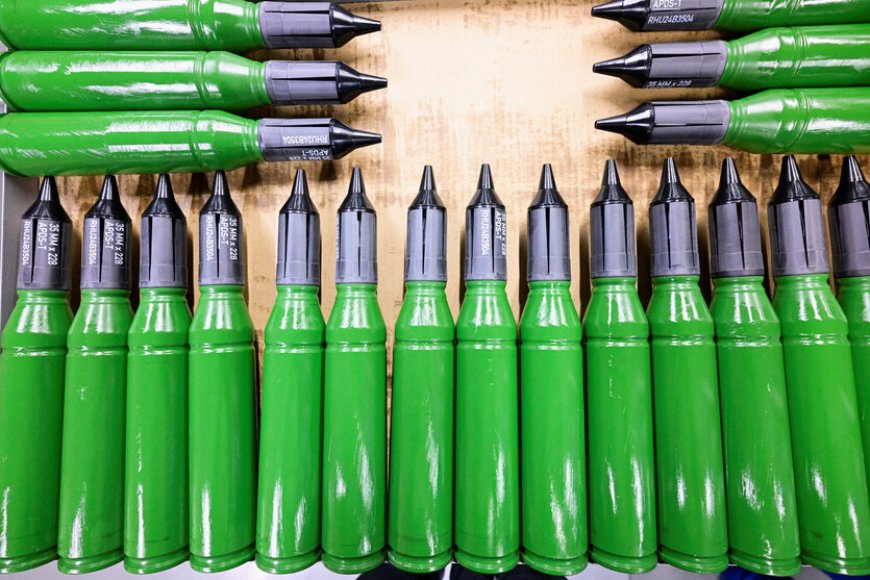Ringing cash registers
Spending on weapons is rising, and arms companies are making money. Would an excess profit tax be the solution?

Military support for Ukraine, new weapons for the German army, higher arms spending throughout NATO – all of this is making arms companies’ cash registers ring.
This is also the case with Germany's largest arms company, Rheinmetall : The company is currently aiming to double its sales by 2027. This is also reflected in the share price, which has risen from around 87 euros at the beginning of 2022, i.e. before the Russian attack on Ukraine, to over 700 euros recently: This corresponds to a market capitalization of around 30 billion euros, making Rheinmetall the 16th largest listed arms company in the world.
Rosy business prospects for the company, especially since there is no excess profit tax in sight with which the state could skim off the profits. Only the energy sector had such a tax after 2022, but that is already history. For the FDP, which held the finance ministry until the traffic light coalition broke down, higher taxes were a nightmare anyway. And the arms industry is countering this, pointing out that in their sector, unlike in the energy industry from 2022, it is not about "fluke profits" - but about intended orders, production and delivery.
Who is the profiteer of the crisis?
But Christoph Trautvetter from the Tax Justice Network is also skeptical. He sees oil companies, banks and the automobile industry as the winners of the crisis in Germany, rather than the arms industry: "There is not much to tax, there are not even any excess profits for the German arms companies, it is not financially worthwhile and is too complicated," he told taz.
Instead, Trautvetter advocates taxing companies worldwide whose profits amount to more than 10 percent of turnover over a period of more than three years. This is a clear indication of a monopoly. This would include the US manufacturer Lockheed Martin, an arms company.
There are certainly historical precedents for an excess profits tax for arms companies. For example, the German Bundestag's Research Service explored the possibilities in 2021. In both World Wars I and II, the USA had an excess profits tax. The same applies to Great Britain, where the tax was initially introduced in 1939 only for arms companies and was only later extended to other sectors.
France also took the same approach. Exactly who was taxed and how much varied. However, in some cases the taxes were "unusually high" from today's perspective, according to the Scientific Service. The reason for this: In the USA, for example, it was felt to be unfair "that some citizens were able to make high profits while others were risking their lives for the state on the battlefields."













































